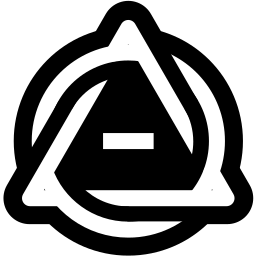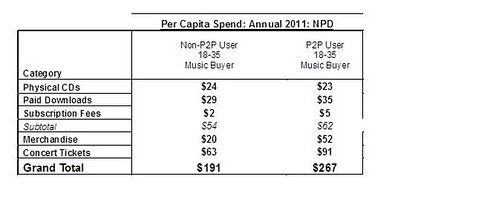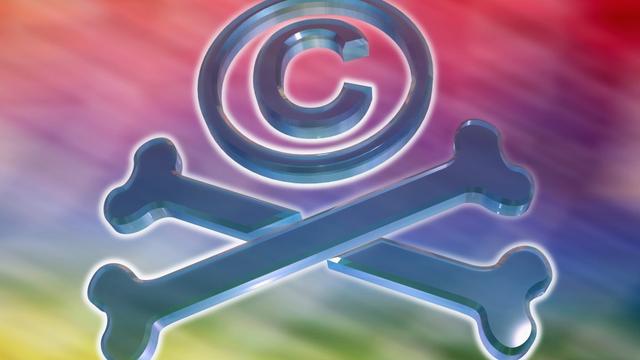the fact that the Internet Archive got into bigger trouble for lending books they paid for than Facebook did for reproducing books they pirated tells you everything you need to know about copyright.
.... and billionaires
Didn't something like that happen to the reddit founder before his homes sold him out?
I think it tells us about copyright owners.
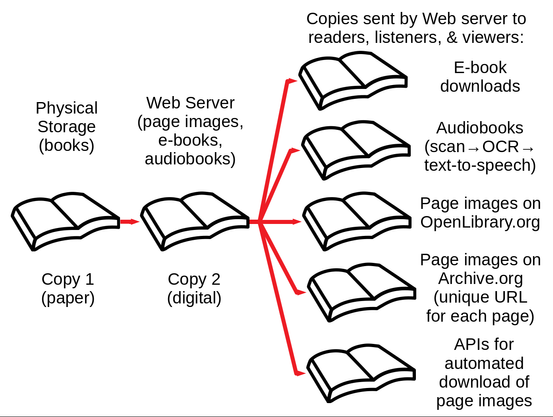
What is the Internet Archive doing with our books? | NWU
The NWU presented a public informational webinar on “What is the Internet Archive doing with our books?” on April 27 and May 5, 2020. The webinar explains "Controlled Digital Lending", the "National Emergency Library", and "One Web Page for Every Page of Every Book": Video of webinar Slides from webinar Related articles: We Need Federal
How does that excuse Facebook?
I don't disagree with you on that but on the diversion away from the point of the post. One organization aiming to do good was held accountable for a mistake / suspicious activity. The for-profit company known for causing mass harm got a pass on using pirated books for training AI.
The courts are refusing to hold Facebook/Meta accountable and we all might suffer for that one way or another.
@ariaflame Does the widespread access to libraries in Germany for as little as 10€ a year (gratis for kids) cause people not to buy books?
- "If everyone could get this for free, who would pay?"
Wrong question. The right question is: why do people pay for books even though they don’t have to?
Why did people pay for music between 2002 and 2007 when 30% of people could download everything?
And why did those who downloaded pay more?
https://www.michaelgeist.ca/2012/11/npd-data-on-p2p/
As I remember it was something along the lines of books should be free. And you know, if there was a UBI for everyone so that people didn't need to rely on doing something for income then it might be.
@ariaflame they wrote "good. access to knowledge should be free."
I understand why they blocked you: your point (no new books) has been disproven again and again and again whenever scientists actually made a study to investigate whether free access (via p2p) caused financial losses to artists.
Even the "displacement" study of the EU commission could only find a small effect on blockbuster movies, but nothing else.
For a list, see https://web.archive.org/web/20240101120718/https://wiki.laquadrature.net/Studies_on_file_sharing#Economical_effects_of_filesharing
@nargacutie @ehasbrouck @Yuvalne
Aren't you (and NWU there) describing the IA National Emergency Library (which can certainly be debated) rather than how IA has operated outside a ~3-month period in 2020?
Are you suggesting that IA is currently doing this?
https://nwu.org/what-is-the-internet-archive-doing-with-our-books/

What is the Internet Archive doing with our books? | NWU
The NWU presented a public informational webinar on “What is the Internet Archive doing with our books?” on April 27 and May 5, 2020. The webinar explains "Controlled Digital Lending", the "National Emergency Library", and "One Web Page for Every Page of Every Book": Video of webinar Slides from webinar Related articles: We Need Federal
Thank you - although that's the same link, and the unlimited-numbers-of-copies part in your first message relates only to a short period during the pandemic.
The part to which I can understand authors objecting (and even then IA is not the real cultural enemy) is the business about IA sharing scans for in-copyright books without paying the higher fee that libraries do for sharing copies.
Do you have any figures for what fraction of in-copyright books appear in IA? Pretty much everything I access is either out of copyright or else provided by the publishers/authors for public-good reasons. And the ones that I've seen loaned seem only to have minimal sample pages otherwise accessible (far fewer pages than e.g. a typical Amazon sample view). For example, is IA sharing copies of the books you've authored? Can you provide some concrete examples of books which illustrate the harm? Thanks.

What is the Internet Archive doing with our books? | NWU
The NWU presented a public informational webinar on “What is the Internet Archive doing with our books?” on April 27 and May 5, 2020. The webinar explains "Controlled Digital Lending", the "National Emergency Library", and "One Web Page for Every Page of Every Book": Video of webinar Slides from webinar Related articles: We Need Federal
Thanks again. The URL-per-page is a technical aspect (one that I rely on daily for managing references to materials in the #BiodiversityHeritageLibrary - part of IA, but separate from the OpenLibrary). The issues at question are the channels by which books become scanned copies, the proportions of such texts that can be accessed by users, and whether IA is operating properly as a library in what its doing for the still-encumbered works.
I do understand your concern and won't try to argue you into seeing IA as a positive, although I am confident it is one of the most important efforts we have for ensuring the preservation of human knowledge and culture in increasingly dark times. I do believe that the NWU page weakens its case by repeatedly insinuating bad faith (e.g. in the comments following the take-down of the freelance writers' guide).
We Need Federal Funding for Distance Learning, During the Pandemic — and After | NWU
The COVID-19 pandemic has created a huge increase in demand for digital copying and distribution of written (and visual) materials for distance learning at all levels. This includes everything from current news articles to textbook content to literature and non-fiction books. Writers are, of course, eager to make our works more widely available -- and
https://nwu.org/what-is-the-internet-archive-doing-with-our-books/

What is the Internet Archive doing with our books? | NWU
The NWU presented a public informational webinar on “What is the Internet Archive doing with our books?” on April 27 and May 5, 2020. The webinar explains "Controlled Digital Lending", the "National Emergency Library", and "One Web Page for Every Page of Every Book": Video of webinar Slides from webinar Related articles: We Need Federal
@ehasbrouck not true at all
Lending book was indeed limited by a copy at a time, thus the long waiting list on famous books.
I would say you never ever tried the feature.
You might be talking about the access ti PD books. Making a biased and wrong assuption to defend copyright holders whom have too much power already.
https://nwu.org/what-is-the-internet-archive-doing-with-our-books/

What is the Internet Archive doing with our books? | NWU
The NWU presented a public informational webinar on “What is the Internet Archive doing with our books?” on April 27 and May 5, 2020. The webinar explains "Controlled Digital Lending", the "National Emergency Library", and "One Web Page for Every Page of Every Book": Video of webinar Slides from webinar Related articles: We Need Federal
Keeping in with the conversation, though, instead of suing Meta for an illegal practice and piracy act, you rather try to shut down a library.
- Your approach here is with a mind of paper book industry.
- The OpenLibrary doesn't serve copies of the books. It's a catalog that links to the Archive
- Links are not copies of the files
- Links to single pages are not an issue, as the file is served from the Archive. If it's borrowed you can access it, if you don't only the sample pages
- DRM technology is the same used by Amazon
The links provided are not working (as intended) or from a book in the DP (as intended)
Now that you sent the same information as pdf, I see the issue was the html format.
I am wrong, you are totally and comoletely right. I see it now.
Soery I interruptes your monoligue. It will not happen again
Goodbye
- You are considering your work a product
- You are treating a public library as a store
- In the context of the conversation, you didn't express any issue against Meta.
Therefore, you agree of grinding our works to be plagiarized automatically as any kind of product, you agree with macrobusiness abuse, you don't care or you got payed to look away.
@ehasbrouck yes they are. That's the whole point of this conversation. That started exactly with
"the fact that the Internet Archive got into bigger trouble for lending books they paid for than Facebook did for reproducing books they pirated tells you everything you need to know about copyright." Talya
They are so pirating your works and even mine.
https://authorsguild.org/news/meta-libgen-ai-training-book-heist-what-authors-need-to-know/
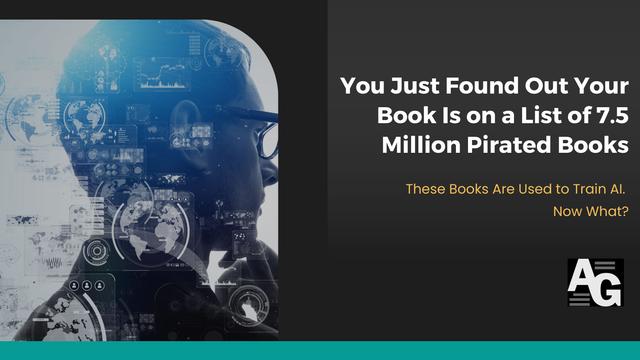
Meta's Massive AI Training Book Heist: What Authors Need to Know - The Authors Guild
Today, The Atlantic published a search tool that allows authors to check if their works are in LibGen, an illegal pirate site AI companies copied for their AI systems. This is a similar tool to the one that journalist Alex […]
@cibersheep - I haven;t found any of my books using this search tool for this database used as *part* of Meta's input to its AI. I have found my website in another database of Web content pirated and used to train AI, and I have complained about it: https://hasbrouck.org/blog/archives/002685.html
See also this presentation I gave to a local writers' group for some of my thoughts on generative AI:
https://hasbrouck.org/blog/archives/002752.html
@ehasbrouck in other matter, piracy os not the problem.
In the late 80s the game industry crashed because legit owners of the products had problems to play our copies with the cumbersome antipiracy methods.
A recent study suggest, piracy doesn't harm the industry https://arstechnica.com/gaming/2017/09/eu-study-finds-piracy-doesnt-hurt-game-sales-may-actually-help/
Business counts pirated copies as lost sells. In reality they are not, it seams at the end. But low quality products might.
@ehasbrouck additionally, copyright laws are abusive, created and manipulated to squeeze profits, not always morally (and some to make Disney happy).
And since, for example, reading a book to a child is a copyright infringement, I think we need to focus the conversation pointing the big corporations not public libraries and find a new way for authors to be payed for their work.


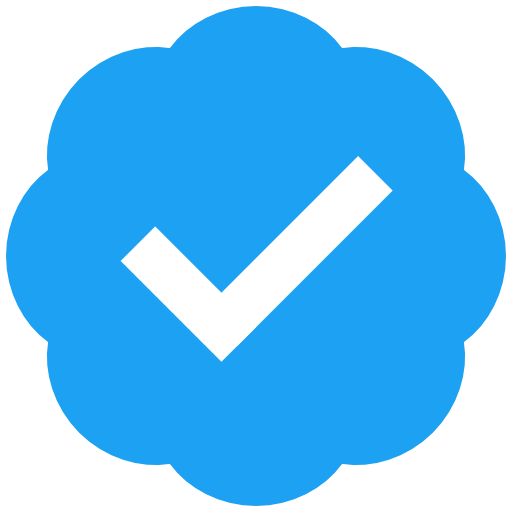



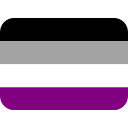 θΔ ⋐ & ∞
θΔ ⋐ & ∞